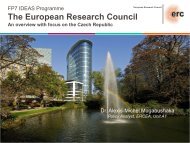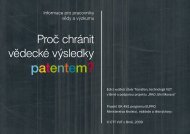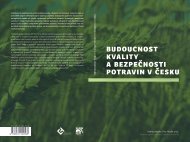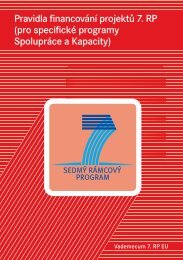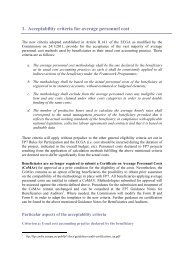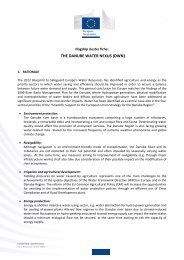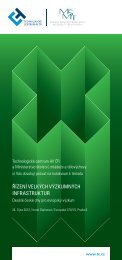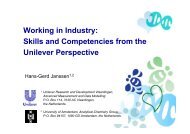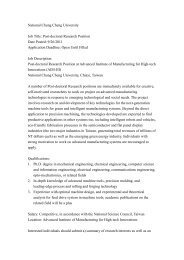Guide to Research and Innovation Strategies for Smart Specialisation
Guide to Research and Innovation Strategies for Smart Specialisation
Guide to Research and Innovation Strategies for Smart Specialisation
You also want an ePaper? Increase the reach of your titles
YUMPU automatically turns print PDFs into web optimized ePapers that Google loves.
Some or all of these engagement mechanisms will be relevant <strong>to</strong> the RIS3 exercise because the<br />
latter involves an even deeper <strong>and</strong> more iterative relationship with the business community. But<br />
innovation is increasingly a collective social endeavour, <strong>and</strong> the business community should not<br />
be expected <strong>to</strong> carry the full burden of innovation on its own shoulders. Success in the<br />
innovation stakes will increasingly go <strong>to</strong> countries <strong>and</strong> regions that transcend the sterile<br />
ideological debate about private v public <strong>and</strong> embrace the fact that innovation is a collective<br />
social endeavour, at the heart of which is a judicious private + public partnership.<br />
Getting firms, universities, development agencies <strong>and</strong> regional governments <strong>to</strong> accept that<br />
innovation is a collective social endeavour - where participants freely acknowledge that working<br />
in concert can deliver far more than working in isolation - is arguably the most important<br />
ingredient in the ‘recipe’ <strong>for</strong> purposeful entrepreneurial search. This does not displace the firm<br />
from the <strong>for</strong>efront of the search process; but it does mean that the costs <strong>and</strong> risks associated with<br />
entrepreneurial search are shared <strong>and</strong> there<strong>for</strong>e do not become <strong>to</strong>o prohibitive <strong>for</strong> the firm that is<br />
leading the search process.<br />
To tap the potential of related variety, regional authorities <strong>and</strong> development agencies will need <strong>to</strong><br />
behave less like traditional public bureaucracies <strong>and</strong> more like innovation animateurs, brokering<br />
new connections <strong>and</strong> conversations in the regional economy. New opportunities are emerging in<br />
old regions as a result of connections <strong>and</strong> conversations that are now occurring but which never<br />
occurred in the past despite the parties being co-located in the same region (proving that<br />
cognitive proximity is far more important than mere physical proximity).<br />
The onus of responsibility <strong>for</strong> creating such iterative processes rests primarily with public sec<strong>to</strong>r<br />
bodies – especially universities, development agencies <strong>and</strong> regional governments. Learning by<br />
doing will help these public sec<strong>to</strong>r bodies <strong>to</strong> appreciate the needs of firms, but more <strong>for</strong>mal<br />
action learning programmes will also be needed. A good example of such a programme is the<br />
Place-Based Leadership Development Programme, which regions may wish <strong>to</strong> adapt <strong>and</strong> adopt<br />
<strong>to</strong> help them acquire the iterative skills needed in the RIS3 exercise (see Figure 2).<br />
Figure 2 - A Place-based Leadership Development Programme<br />
41



